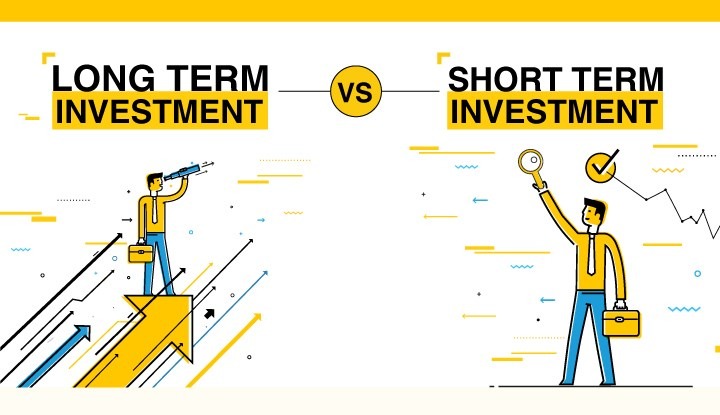Investing in the stock market is an age-old practice that has the potential to create substantial wealth over time. However, the approach to investing varies based on individual goals, risk tolerance, and investment horizon. One of the primary debates in the world of investing revolves around the choice between short-term and long-term investments.
In this article, we will delve into the advantages and disadvantages of both approaches, considering factors such as risk, returns, market volatility, and personal financial goals. Additionally, we will explore the role of a best stock advisor in india and identify the best stock advisor that can assist investors in making informed decisions.
Short-term Investments: A Brief Overview
Short-term investments involve buying and selling assets over a relatively short period, typically within a year. These investments are often characterized by their potential for quick gains, frequent trading, and a focus on market trends. Short-term investors commonly engage in day trading, swing trading, and momentum trading to capitalize on short-lived price movements.
Advantages of Short-term Investments
- Quick Profits: Short-term investments have the potential to yield rapid returns. Traders can capitalize on short-term price fluctuations to make profits in a short span of time.
- Liquidity: Short-term investments are generally more liquid, allowing investors to quickly convert their holdings into cash if needed.
- Adaptability: Short-term traders can adjust their strategies based on changing market conditions and news events, potentially minimizing losses.
Disadvantages of Short-term Investments
- High Risk: Short-term trading is often associated with higher risk due to the volatility of the markets. Prices can change rapidly, leading to unexpected losses.
- Transaction Costs: Frequent trading can lead to higher transaction costs, including brokerage fees and taxes, which can eat into potential gains.
- Market Timing: Successfully timing the market consistently is challenging. Mistimed trades can lead to significant losses.
Long-term Investments: A Brief Overview
Long-term investments involve holding assets for an extended period, typically years or even decades. The primary focus of long-term investing is to benefit from the power of compounding and the overall growth of the economy and markets over time.
Advantages of Long-term Investments
- Compounding Returns: Long-term investors can harness the power of compounding, where earnings on investments generate additional returns, leading to exponential growth.
- Reduced Volatility Impact: Long-term investors are less affected by short-term market fluctuations, as they believe in the potential of the market to recover and grow over extended periods.
- Lower Transaction Costs: Long-term investors trade less frequently, resulting in lower transaction costs and taxes.
Disadvantages of Long-term Investments
- Delayed Returns: Long-term investments require patience, as the potential for significant returns might take years to materialize.
- Opportunity Cost: While waiting for long-term investments to mature, you might miss out on other potential investment opportunities.
- Market Uncertainty: Long-term investments are subject to economic and political uncertainties, which can impact returns over time.
The Role of a Stock Advisor in India
In the complex world of investing, many individuals seek guidance from professionals to navigate the markets effectively. A stock advisor, also known as a financial advisor or investment consultant, plays a crucial role in assisting investors in making informed decisions. In India, where the stock market presents both opportunities and challenges, finding the best stock advisor is essential.
Also Read: Penny Stocks: Everything You Need To Know
Qualities of the Best Stock Advisor in India
- Expertise: The best stock advisor in india should have a deep understanding of the Indian stock market, economic trends, and global influences on the market.
- Track Record: A reputable stock advisor should have a track record of providing accurate advice and delivering consistent returns over time.
- Personalized Approach: Different investors have varying risk tolerances and financial goals. A great stock advisor tailors their advice to each individual’s unique circumstances.
- Transparency: Honest and transparent communication regarding investment strategies, fees, and potential risks is a hallmark of a trustworthy stock advisor.
- Continuous Learning: The investment landscape is constantly evolving. A top best stock advisor in india stays updated with the latest market developments and adjusts their strategies accordingly.
Making the Decision: Short-term vs. Long-term Investments
As you evaluate the options, remember that the choice between short-term and long-term investments is not binary. It’s possible to have a diversified investment strategy that combines elements of both approaches. For instance, you might allocate a portion of your portfolio for short-term trading while also holding onto long-term investments that can compound over time.
Your decision should be based on your financial goals, risk tolerance, time availability, and your understanding of the investment landscape. Consider seeking advice from the stock advisor you choose, as they can provide insights that align with your objectives.
Short-term vs. Long-term Approach: Which to Choose?
The choice between a short-term and a long-term investment approach ultimately depends on your financial goals, risk tolerance, and investment horizon.
Choose Short-term Investments If:
- You have a high tolerance for risk and can actively monitor the markets.
- You’re seeking quick profits and are willing to accept the potential for losses.
- You have the time and dedication to learn and implement short-term trading strategies effectively.
Choose Long-term Investments If:
- You prefer a more stable and predictable approach to investing.
- You believe in the power of compounding and are willing to be patient for substantial returns.
- You have a lower risk tolerance and are not comfortable with frequent market monitoring.
Conclusion
In the world of investing, the choice between short-term and long-term investments is a crucial decision that can significantly impact your financial future. Each approach has its own set of advantages and disadvantages, catering to different types of investors.
While short-term investments offer the potential for quick gains, they come with higher risks and transaction costs. On the other hand, long-term investments leverage the power of compounding and provide stability, but require patience and a longer time horizon.
Regardless of your chosen investment approach, seeking guidance from a knowledgeable stock advisor is a wise step. In India, where the stock market can be both rewarding and challenging, the best stock advisor in india can provide personalized advice, help you navigate market fluctuations, and assist you in making well-informed investment decisions aligned with your goals.
Remember, the key to successful investing lies in understanding your own financial objectives and risk tolerance before making any investment decisions.
Also Read: August Outdoor Essentials: Must-Have Items for Every Home




